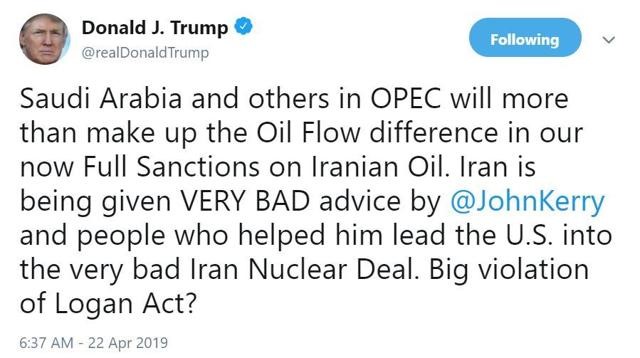The U.S. has voiced its concerns over the Saudi-Russian oil price war, but thus far, those concerns appear to have fallen on deaf ears. In an interview that was broadcast on CNBC, Senator Ted Cruz (R-TX) answer the question, “Do you think President Trump should try to use his influence with Russia or Saudi Arabia to try to get them to stop producing so much oil?”
“Absolutely. I think that is a major priority especially for my home state of Texas. And if you look what happened, right in the midst of the coronavirus crisis, a public health crisis that is dominating our focus, and an economic crisis that is flowing from it. Millions of people losing their jobs.
“The Saudis and Russians decided to take advantage of that crisis by flooding the market and driving the price of oil way, way down. And that was opportunistic. It was designed with a very specific purpose. The Saudis are trying to drive out of business American producers, and in particular shale producers, largely in the Permian Basin in Texas, North Dakota and in a number of oil producing states across the country.
“That behavior I think is wrong. I think it is taking advantage of a country that is a friend.
“A couple of weeks ago, I joined with thirteen senators in a letter to the Saudi Ambassador to pull back and stop trying to drive the price down to artificially low. Nine of the thirteen did a conference call with Saudi Ambassador that was as candid a call and direct a call as I’ve ever had with a foreign leader. The nine of us unloaded on her. And their defense was but Russia is doing this.
“I said but Russia is not our friend. We treat them accordingly. We are aware of their Continue reading "Unprecedented Oil Glut Appears Inevitable"




